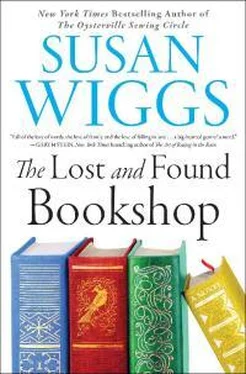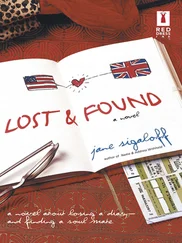He found things like a jar of peanut butter in the bathroom cabinet. The old guy asked the same questions over and over again—What’s your name? Where are you from? Are you here about the plumbing?—until Peach realized that no answer would seat itself in the guy’s head in any meaningful way. How did it feel to forget everything? Did Andrew know he was losing it? Did he fight to keep his sense of self? Did he feel it eroding, or did it ebb and flow?
Man , thought Peach, I wish I knew how to talk to you . It was a bit like being with someone who spoke a different language. But sometimes he imagined he could actually sense Andrew’s panic and disorientation. And now his self-loathing when he pissed himself and stood glaring at his feet. “Hey, this is a good time to check out the shower bars,” Peach said when he noticed the wet floor. “Let me give you a hand.” He set aside his tools and held up a towel while Andrew undressed and moved to the shower bench.
Peach turned on the shower and handed the wand to Andrew. “Rinse yourself off and I’ll find you something to put on.”
Andrew simply held the shower wand against his bony chest and regarded the stream of warm water with a sense of wonder. Peach grabbed a change of clothes from the closet and set them by the tub. When the shower stopped, he handed over a towel and went to clean up the mess.
A few minutes later Andrew came out, dressed in clean clothes, looking slightly chastened. “I’m sorry to be such a burden.”
“Don’t worry about it.”
“I’m old.”
“We’ll all get there one day, buddy,” Peach said, “if we’re lucky.”
“I’ve far outlived my usefulness,” Andrew said.
“Listen, I don’t know you guys so well, but I know this. Natalie needs you. And you’re damn lucky to have her. Everything she does shows you that you mean the world to her.”
“I shall keep that in mind, young man,” Andrew said. “But if I forget, you must remind me.”
Peach nodded, then went back to work. When he finished for the day, he took his tools to the truck and loaded up. “I’ll be back in the morning,” he said to Natalie. “Eight o’clock okay?”
She nodded. “I’m an early riser.” She paused, then said, “I heard you talking with my grandfather.”
“He’s good company. Hope that’s okay.”
“Okay? It’s wonderful. Thank you. Some people . . .” She bit her lip, looked down. “Some people don’t have the patience. It’s hard. There are times when I have to remind myself that he’s still there.”
Peach realized by “some people,” she meant herself.
“Have a good evening, then.” He hesitated, a hairbreadth from inviting her to get a drink and maybe a bite to eat. She looked so damned lonely in the empty shop.
12
“Grandy?” Natalie partially opened the door to his apartment. “Charlie’s going to be here at nine to take you to breakfast.”
Silence. She pushed the door open and stepped inside. “Hey, Grandy.”
As usual, his bed was neatly made, the small table carefully arranged with his typewriter and pages about the Sunrose Building. He’d always been fastidious. The wheelchair was parked over by the radiator. The scent of witch hazel still hung in the bathroom. But her grandfather was gone.
A jolt of panic sent her rushing to the back door. Opening it wide to the garden, she ran down the ramp and looked around but saw no sign of him. Then she hurried back to the shop, where Peach was setting up for the day’s work. Today’s challenge was to tackle the electrical panel, now open like a tangle of exposed nerves. The old building’s antiquated wiring was objectively dangerous and probably wildly out of compliance. The attic space was swagged with ancient knobs and tubes from times long past, and the whole panel needed to be reconfigured. Peach had warned her that inspectors were notoriously picky.
“Have you seen my grandfather?” she asked.
“Today? Nope.” He had the panel box open and was studying the breakers as if they held the day’s winning lottery numbers.
“He’s gone,” she said. “I’m afraid he wandered off.” Her stomach knotted. Grandy’s care team, still baffled by his symptoms, had mentioned the possibility that he could leave the house—“exit-seeking,” it was called—and lose his way. “It’s all my fault,” she said. “I meant to set an alert on the security system but I haven’t done it yet. Oh my God, if something hap—”
“Easy,” said Peach, heading for the front door. “We’ll find him. He couldn’t have left this way. I let myself in this morning with the code and locked the door from the inside behind me.”
She felt the color drop from her face. “The back door wasn’t locked.”
They both made a dash for it. She called Grandy’s name and got no response. Peach checked the back gate. “Good news,” he said. “This is still locked. I doubt he’s spry enough to jump the fence.”
She was about to call 911. “Then where—”
“There,” he said, pointing to a small space at the side of the building. “Isn’t that his cane?”
It was leaning next to the panel door that provided outside access to a long-neglected crawl space that May Lin had used as a shed to store her gardening tools and supplies. “Grandy!” She ducked her head and poked it inside. “What are you doing?”
Andrew shone a penlight into her eyes, and she flinched. “I thought Natalie would enjoy seeing the bird books,” he said.
“Oh, Grandy.” She stepped forward and put her hand on his arm. “It’s me. Natalie. You’re looking for something?”
“We’ve been searching for years,” he muttered, following her. “Papa was always looking for his books.”
“Papa. You mean your father, Julius.”
“After he lost his mother, after he lost everything, he still remembered those treasured pictures with all the birds.”
She could only imagine the wrenching trauma of seven-year-old Julius, alone and lost after the city’s deadly earthquake and fire.
“Everything all right?” Peach asked, ducking as he came through the low door.
She nodded, offering a fleeting smile. “He always seems to be searching for something.” If this was where old books had been stored, she thought, they’d probably been ruined by the damp air.
Using the flashlight on his phone, Peach inspected the cramped, dusty space. An old rake, a sack of fertilizer, plant pots in a lopsided stack. She could see a small army of spiders hanging in the corner, their webs like trapeze nets, and the sight made her shudder. “Oh my God,” she said, pulling her grandfather toward the door. “I’m terrified of spiders. Let’s get out of here.”
“What do you suppose that is?” Peach asked, aiming the beam at an old wood-and-metal box.
“Do you recognize it?” she asked her grandfather.
He frowned and shook his head. Shadows from the doorway flickered across his face. Natalie felt the ghost of a cobweb brush her cheek and shuddered again. “Come on inside, Grandy,” she said. “I’ll fix you a coffee to drink while you wait for Charlie. Now, watch your head.” Taking his hand, she steadied him as they stepped outside.
Grandy looked around the garden. “We used to have an apple tree. I liked to climb it and peer over the fence at the neighbors. At some point, it was cut down. I believe it had some sort of disease.”
“Want me to grab this box?” asked Peach.
“Yes, bring it inside,” she said.
“No problem.”
Even though Peach was here for work, he already seemed like a friend to her. Looking after Grandy and the shop and the building felt overwhelming sometimes—most of the time—and she appreciated Peach’s calm, matter-of-fact demeanor.
Читать дальше












